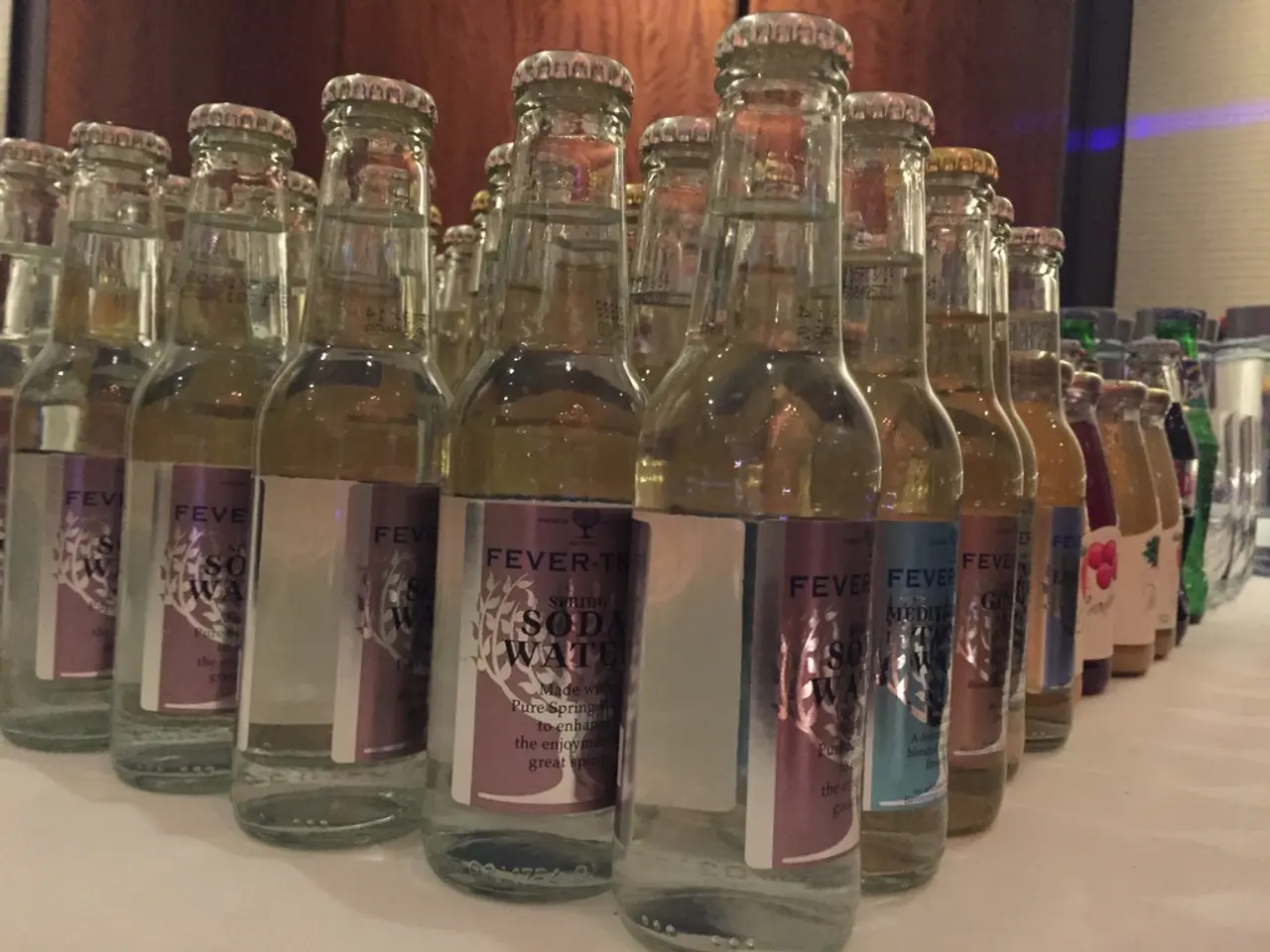Top Recommended Lubricants for Alleviating Menopausal Dryness
In menopause, the decline in estrogen levels can lead to various symptoms, one of which is vaginal dryness. This condition can cause discomfort during physical activity, burning, irritation, itching, and painful sex, potentially resulting in vaginal tearing or bleeding [1]. To alleviate these symptoms, several options are available, including personal lubricants and vaginal moisturizers.
When it comes to lubricants, products like Gennev, LOLA, Astroglide, Stripes, K-Y, AH! YES!, and others, offer temporary relief from vaginal dryness, making sex more pleasurable [2]. However, it's essential to note that lubricants do not treat the underlying cause of vaginal dryness [1].
Water-based lubricants are a popular choice due to their skin-safe ingredients and compatibility with latex condoms and sex toys. However, high osmolality in some water-based lubricants can cause irritation and cell damage. On the other hand, oil-based lubricants provide a slippery feel and last longer but may increase the risk of developing a yeast infection if used inside the vagina, cause condom breakage, or degrade sex toys [3].
Silicone-based lubricants are hypoallergenic and last longer than water-based products but may be more difficult to clean [4]. It's crucial to note that not all lubricants will be suitable for everyone, and a person should always check the ingredients before making a purchase.
Vaginal moisturizers, on the other hand, are designed for regular use to provide long-lasting hydration and support the integrity of vaginal tissues, promoting better vaginal health over time [5]. These can help maintain natural moisture balance, improve tissue elasticity, and reduce symptoms of vaginal dryness linked to decreased estrogen levels during menopause [2][5]. Using moisturizers regularly may help prevent progression of vaginal atrophy symptoms such as thinning, irritation, and discomfort [1][2].
In addition to lubricants and moisturizers, people can help increase vaginal lubrication during perimenopause by applying water-based lubricants before sex, using vaginal moisturizers that are suitable for internal use, washing with fragrance-free products, and engaging in other sexual acts before vaginal penetration [6].
It's important to remember that managing vaginal dryness effectively can lead to improved sexual comfort and satisfaction, reduced irritation, and potentially better urinary and genital health [1][3]. Additionally, addressing vaginal dryness can positively impact mood, self-image, and quality of life in menopausal women [3].
However, lubricants and moisturizers do not replace hormonal treatments that address the root cause of genitourinary syndrome of menopause (GSM). Estrogen-based treatments (topical estrogen creams, rings, or systemic therapy) may be necessary for more severe cases, as they directly improve vaginal tissue health and thickness [1][4]. Complementary and alternative therapies like phytoestrogens also exist but require medical guidance to evaluate efficacy and safety [4].
In conclusion, while lubricants are useful for immediate symptomatic relief during intercourse, vaginal moisturizers provide longer-term support for vaginal health when used regularly. Both contribute positively to comfort and well-being if appropriately selected, but underlying hormonal changes often require additional medical management [1][2][3][5].
References:
[1] Medical News Today. (2021). Vaginal dryness during menopause: Causes, symptoms, and treatments. Retrieved from https://www.medicalnewstoday.com/articles/323876
[2] Mayo Clinic. (2021). Vaginal dryness. Retrieved from https://www.mayoclinic.org/diseases-conditions/vaginal-dryness/symptoms-causes/syc-20351039
[3] North American Menopause Society. (2021). Menopause and Sex. Retrieved from https://www.menopause.org/for-women/sexual-health-during-menopause
[4] American College of Obstetricians and Gynecologists. (2021). Vaginal dryness. Retrieved from https://www.acog.org/womens-health/faqs/vaginal-dryness
[5] British Menopause Society. (2021). The Management of Vaginal Atrophy. Retrieved from https://www.bms-uk.org/wp-content/uploads/2021/03/BMS-Guidelines-The-Management-of-Vaginal-Atrophy.pdf
[6] Healthline. (2021). 11 ways to ease vaginal dryness during menopause. Retrieved from https://www.healthline.com/health/menopause/vaginal-dryness-treatments#lubricants-and-moisturizers
- Beyond menopause, other health issues affect women, such as depression, bipolar, and obesity.
- A nutritionalist can provide valuable insights to help manage nutrition and potentially alleviate symptoms related to these conditions.
- COPD, a lung disease, is more common among men, but women are not immune to it and should be aware of the symptoms and available treatment options.
- Menopause, in addition to causing vaginal dryness, can also lead to other complications, like vaginal atrophy, which may result in discomfort and health issues.
- Science continues to explore predictive factors for vaginal atrophy, aiming to identify women at high risk and develop targeted treatments.
- Maintaining vaginal health is essential for sexual health, and women's health clinics often focus on promoting and educating about vaginal health and wellness.
- Hormone replacement therapy, apart from addressing vaginal dryness, can also help with symptoms related to menopause, such as hot flashes and night sweats.
- Health-and-wellness programs often focus on providing general health information, but it's crucial to also address specific conditions, like menopause and sexual health, to enhance overall well-being.
- Managing menopause effectively requires a combination of available treatments, lifestyle changes, and medical guidance to ensure both physical and emotional well-being.




